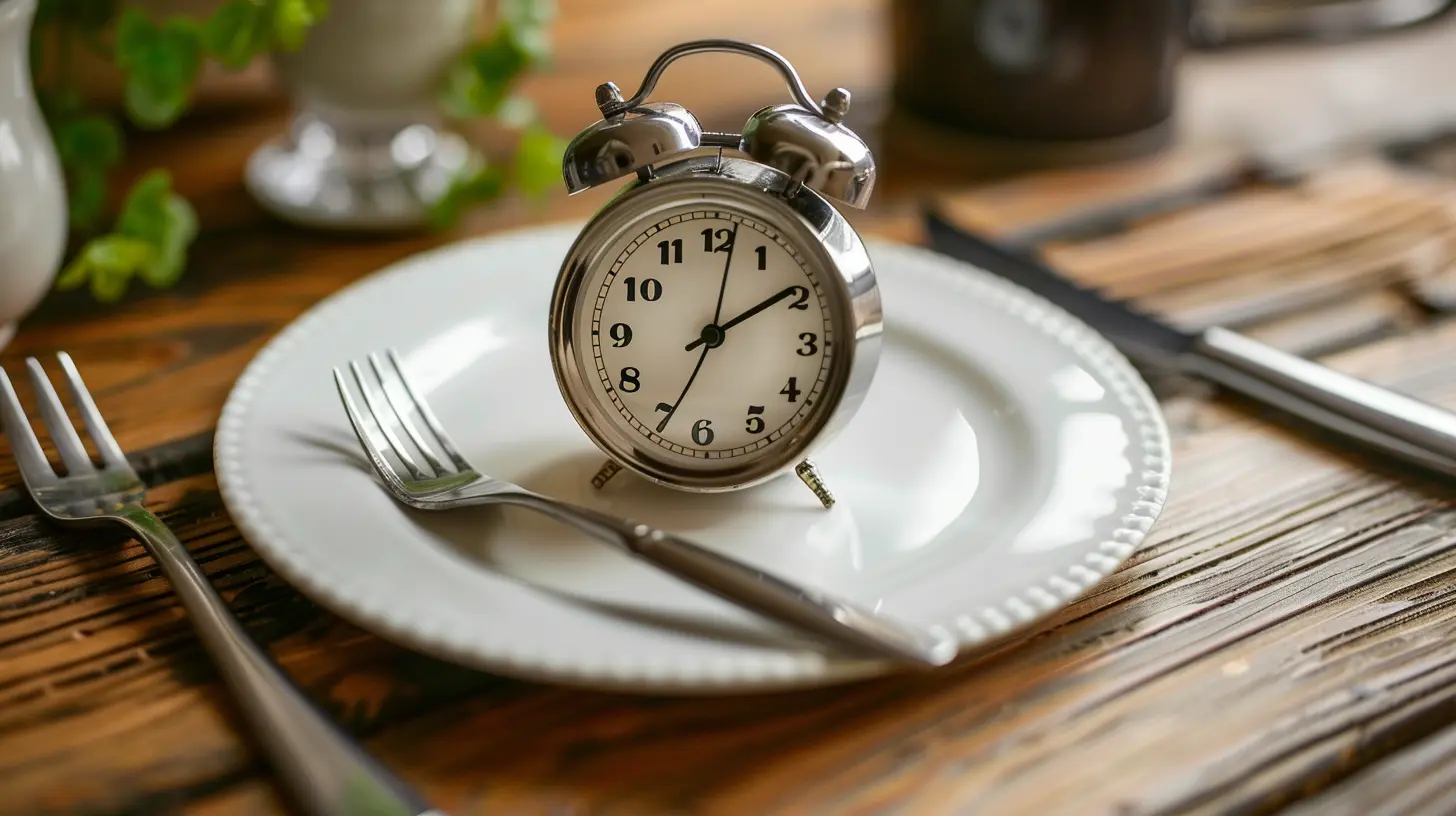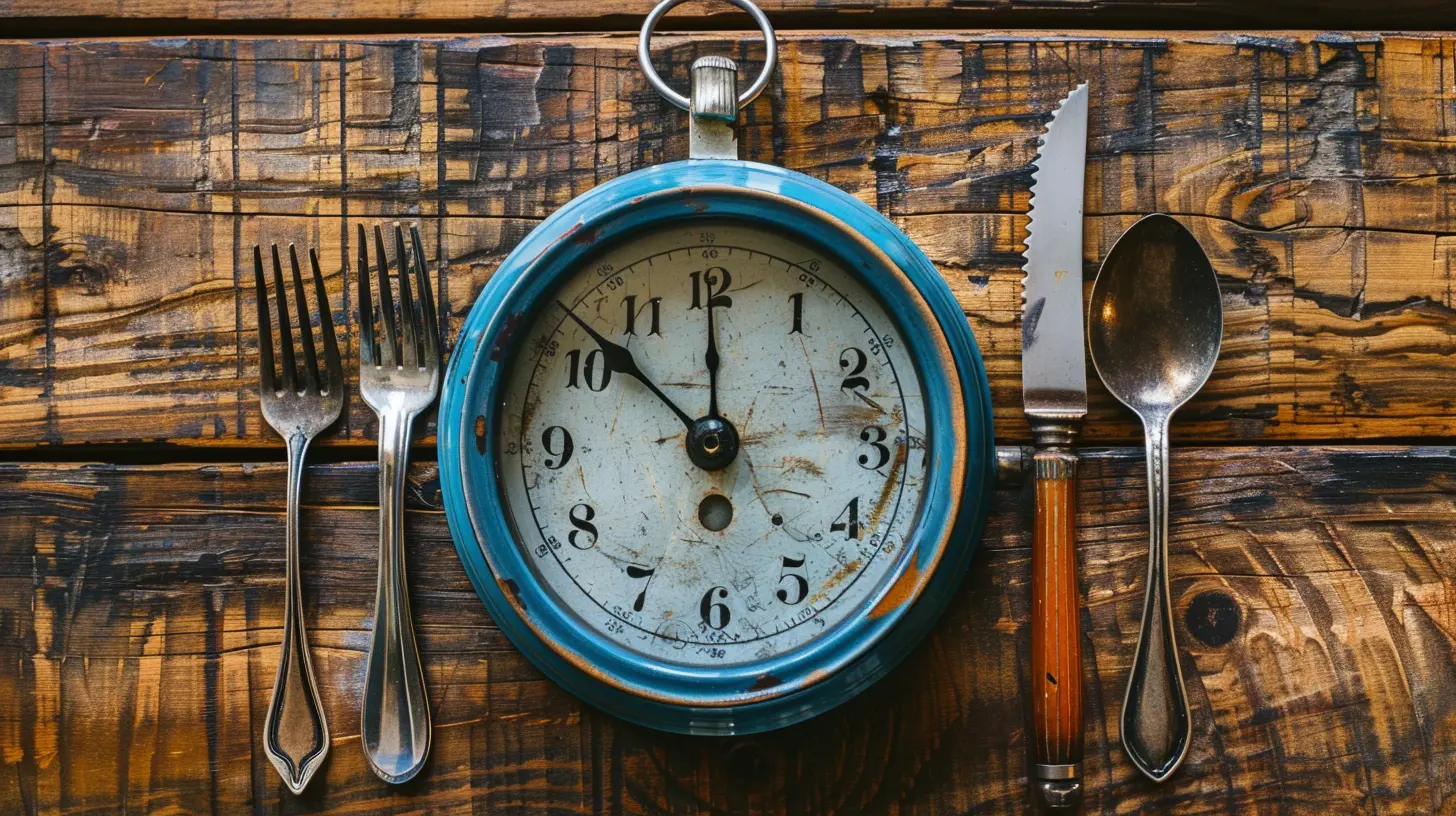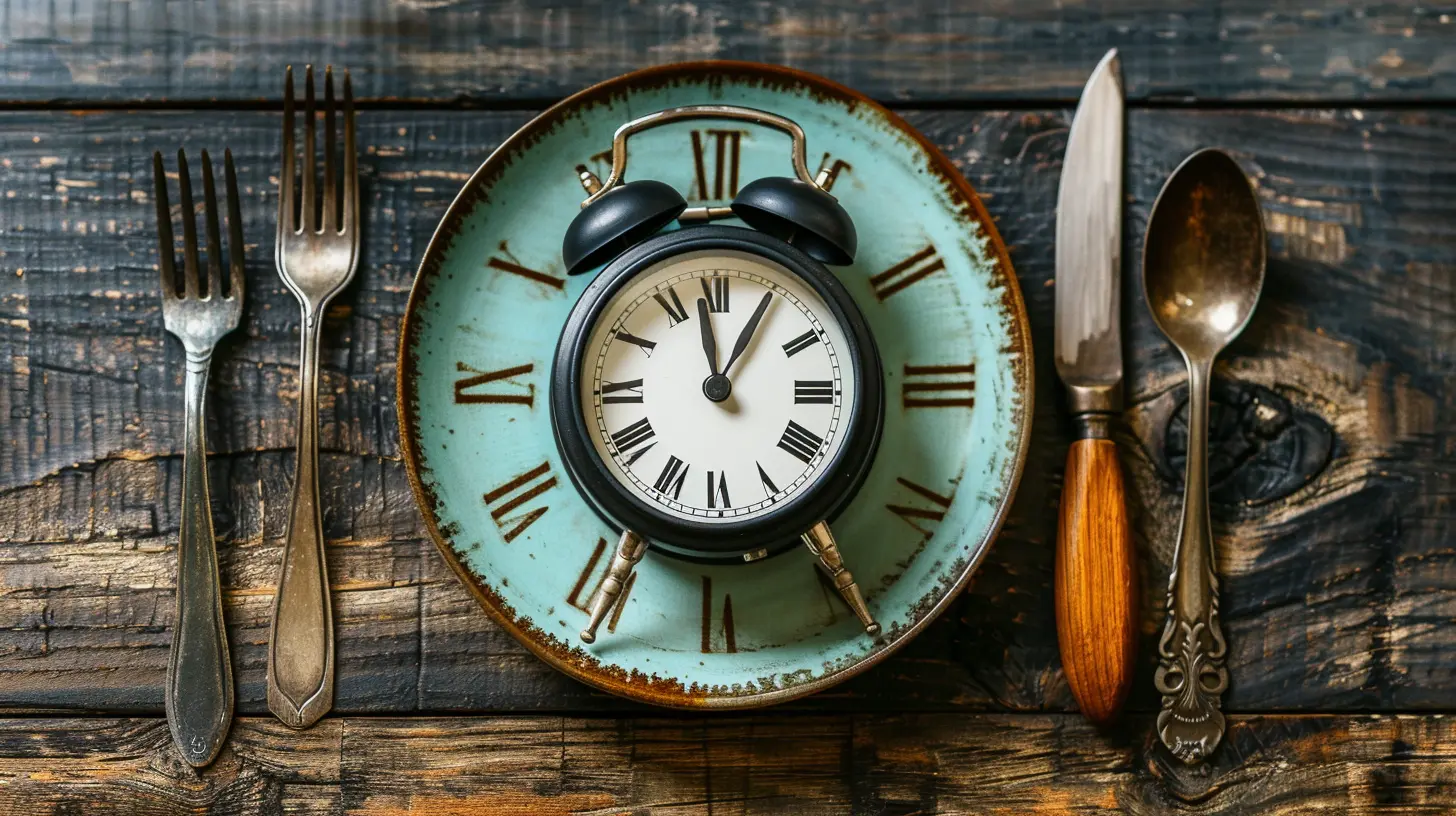Top Signs You’re Doing Intermittent Fasting Wrong
11 October 2025
So, you've hopped onto the intermittent fasting bandwagon—nice! Welcome to the club of skipping breakfast and waiting for the clock to hit 12 PM like it's New Year's Eve. But... something isn’t quite adding up. You’re tired, hungry (like, hangry hungry), and the scale hasn’t budged in weeks.
Let me hit you with some truth: intermittent fasting isn’t magic, and yep, you can absolutely mess it up. In fact, a lot of folks do. So don’t beat yourself up—I've got your back.
Get cozy, grab your black coffee (because that’s all you can have right now, right?), and let's go over the biggest red flags that you're fasting your way into frustration instead of fat loss.
1. You're Eating Like a Gremlin During Your Eating Window
Let's cut to the chase—intermittent fasting isn’t a free pass to go full beast mode on your fridge when the clock hits noon. If your "break-fast" looks like a buffet at a Vegas brunch, we’ve got a problem.Sure, skipping breakfast might save some calories, but if you’re wolfing down five slices of pizza, a tub of hummus, and a "small" handful of M&M’s, you're undoing all that fasting effort.
Fasting works best when you still eat like a human, not like a vacuum.
Tip: Eat balanced meals with protein, healthy fats, and fiber. Your body wants nutrients, not just calories.
2. You’re Basically Starving—and Miserable
OK, let’s address the brooding elephant in the room. If you’re angry at your toaster for even existing and you're fantasizing about chewing cardboard because it smells like toast... your body is trying to tell you something.Fasting shouldn't be torture. Yes, hunger is part of the deal, but if it’s becoming your entire personality, something’s off.
Chronic hunger means:
- You’re not eating enough during your window.
- You’re not eating the right things.
- Or you’re pushing your fasting hours too far.
Fasting is not a hunger games tribute. Listen to your body—it’s smarter than you think (most of the time).
3. You’ve Become the Snooze Button’s Best Friend
Dragging yourself out of bed, dreaming of naps mid-morning, and needing three coffees to feel human? Yeah… your energy tank is running on fumes.Intermittent fasting, done right, should boost your energy—not tank it like a terrible Tuesday.
Reasons you feel like a zombie:
- You’re not sleeping well.
- You’re under-eating.
- You aren’t fueling properly post-fast.
- You’re over-exercising and under-recovering.
Pro tip: Sleep is your secret weapon. If you're waking up exhausted every day, fasting might not be your biggest flex right now.
4. You’re Obsessed With the Clock
Somewhere between waiting until 12 PM and racing to eat by 8 PM, you’ve become the human version of Big Ben. Tick-tock, tick-tock.If you’re constantly watching the clock like it owes you money, you’re mentally burning out. Fasting shouldn't rule your life. It’s supposed to give you freedom—not lock you up in a food jail with hourly rations.
Here's the deal: The 16:8 or 18:6 schedule isn’t gospel. You can adjust it to suit your life, not the other way around.
If it’s ruining your social life, work productivity, or making you cry at your friend's birthday dinner because cake is off-limits—it’s time to rethink your approach.
5. You’re Treating Coffee Like a Meal Replacement
Let’s talk dirty—caffeine addiction. Yeah, we’ve all been there. Black coffee is the fasting MVP because it doesn’t break your fast. But when your coffee intake rivals that of a stressed-out college student before finals, you’re in dangerous territory.Coffee ≠ breakfast.
Yes, caffeine can blunt hunger. But too much can cause:
- Anxiety
- Jitters
- Sleep issues
- Heartburn (aka the dragon breath of doom)
And guess what? Poor sleep and stress slow down fat loss. Shocker.
Limit your caffeine to a reasonable amount (key word: reasonable), and don’t forget that hydration > stimulation.
6. Your Workouts Suck More Than Usual
Once upon a time, you crushed burpees like a beast. Now, just standing up feels like a CrossFit challenge.If your workouts make you feel weak, dizzy, or hangry, your fasting plan needs a tune-up. Working out fasted works for some people, but it’s not mandatory. And it’s definitely not for everyone.
Listen to your body: If you feel better training after you’ve eaten, do that. You don’t get bonus points for suffering.
Fuel = performance. No fuel = couch potato vibes.
7. You’re Not Losing Weight (Or You’re Gaining!)
Let's get brutally honest—if your goal is weight loss and the number hasn’t budged in months (or has gone up), something ain’t right.Fasting should create a calorie deficit. But if you’re eating too much during your window (even healthy foods), or not moving at all, you're basically stuck in neutral.
Also, some sneaky fat-storing habits like:
- Binge-eating post-fast
- Drinking high-calorie coffee drinks (looking at you, oat milk latte)
- Thinking “keto” snacks can be eaten endlessly
can throw a wrench in your progress.
Fasting is a tool, not a magic wand. You still gotta do the basics: whole foods, portion control, and movement.
8. You’re Stressed Out More Than Usual
If you’re crying during dog videos and snapping at delivery drivers, you might be fasting yourself into a mood disaster.Fasting = stress on the body (especially in the beginning). Add that to work stress, life stress, and a flat tire, and you’re one hangry meltdown away from losing it all.
High cortisol (your stress hormone) can:
- Increase fat storage (esp. belly fat)
- Disrupt sleep
- Destroy muscle gain
- Make you want to inhale a party-size bag of chips
Sometimes, not eating can stress your body more than eating would. Shocking, I know.
9. You’ve Ignored Your Female Hormones
Ladies, listen up. This one's for you.Intermittent fasting affects men and women differently. Shocking concept.
Why? Because female bodies are wired to be more sensitive to energy availability. If you’re doing long fasts, skipping meals, overtraining, and wondering why your periods are wonky or MIA—your hormones are waving red flags like it’s a Formula 1 race.
In some women, too much fasting can lead to:
- Irregular periods
- Hormonal imbalances
- Feeling cold all the time
- Hair thinning
- Fertility issues
Balance is key. You are not a robot. You need food and rest to function at your badass best.
10. You’re Not Drinking Enough Water
Pro tip: Fasting = more water needed.Why? Because when you don’t eat, your insulin drops, and your kidneys flush out more water and electrolytes. Magic! Except not… if you forget to hydrate.
Signs of dehydration during fasting:
- Headaches
- Fatigue
- Dry mouth
- Crankiness
- Feeling like a dried raisin in the desert
Drink water. Add electrolytes if needed. Your body and brain will thank you.
11. You’re Expecting Overnight Miracles
If you’re three days in and expecting six-pack abs, I’ve got news: It doesn’t work that way.Intermittent fasting isn’t an "instant abs" button. It’s a lifestyle shift. It takes consistency, patience, and a sprinkle of grace for yourself.
If you’re switching to a new fasting schedule every other day, googling “fasting hacks” at 2 AM, and losing your mind over a pound on the scale—breathe.
It’s okay to chill. Your body isn’t Amazon Prime—it doesn’t deliver overnight.
12. You Forgot Why You Started
This one’s deep. If your goal was to feel better, be more in control of your eating, and simplify your meals—but instead you’re just stressed, hungry, and googling "can I survive on air and black coffee"—you’ve lost the plot.Intermittent fasting should:
- Make your life easier.
- Help you understand real hunger.
- Give you more mental clarity.
- Help you appreciate food.
If it’s not doing that, maybe it’s time to pivot—or at least reassess.
Final Thoughts
Let’s be clear—intermittent fasting can be an awesome tool. It’s helped thousands of people feel better, eat more mindfully, and even lose weight. But it’s not bulletproof, and it’s not for everyone.If you're doing it wrong, it can seriously backfire.
The best eating style is one you can stick to without it turning you into a caffeine-guzzling, clock-watching gremlin with a vendetta against food.
So, check in with yourself. If any of these signs hit home, you’ve got some tweaking to do.
Remember, fasting is a lifestyle—not a punishment. Make it work for you, not against you.
all images in this post were generated using AI tools
Category:
Intermittent FastingAuthor:

Laurie Barlow
Discussion
rate this article
1 comments
Charlotte Hubbard
This article offers valuable insights into common pitfalls of intermittent fasting. Addressing these signs can enhance your fasting experience, optimize health benefits, and promote sustainable results.
October 24, 2025 at 2:45 AM

Laurie Barlow
Thank you for your feedback! I'm glad you found the insights valuable for improving your intermittent fasting experience.


